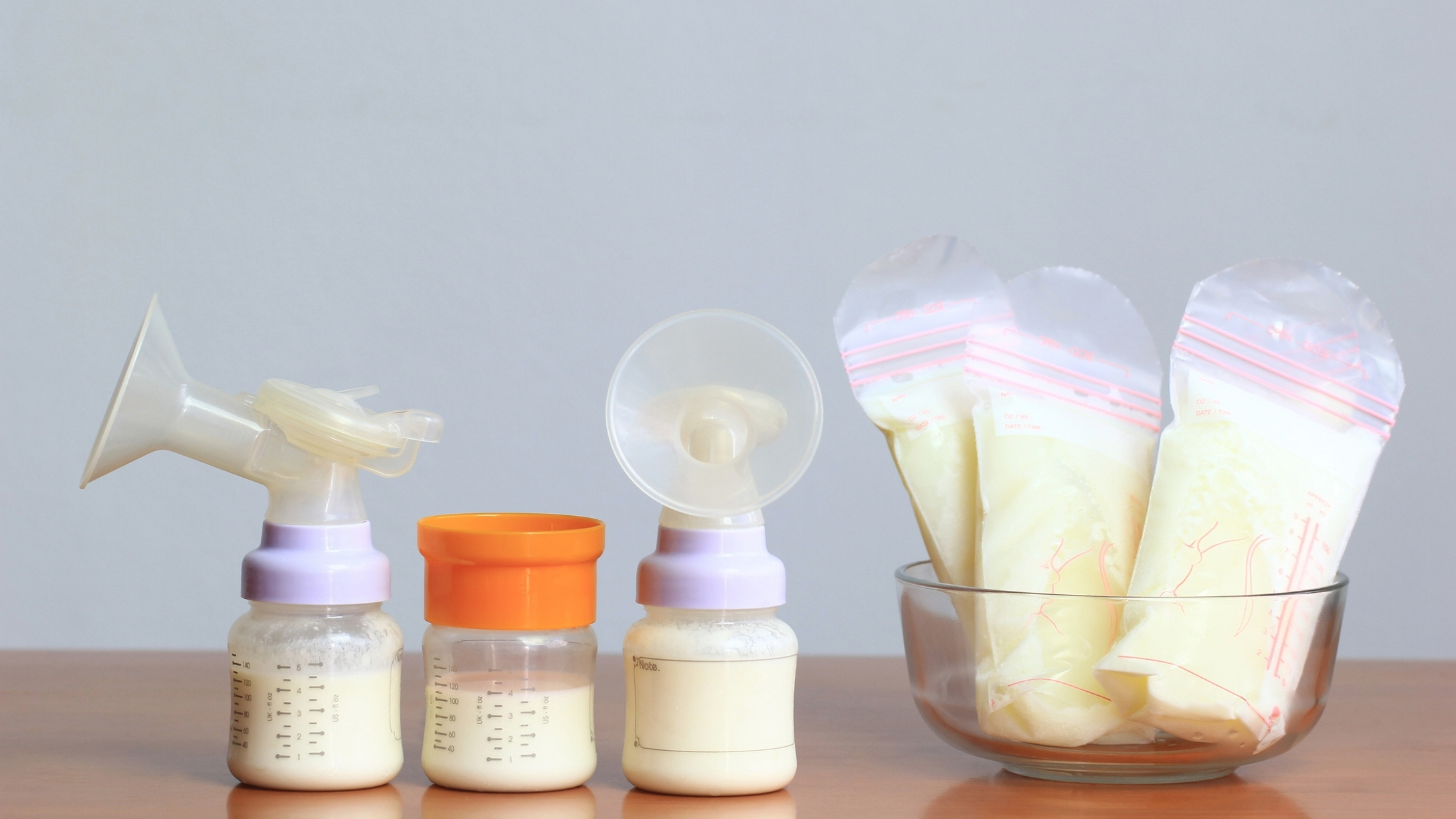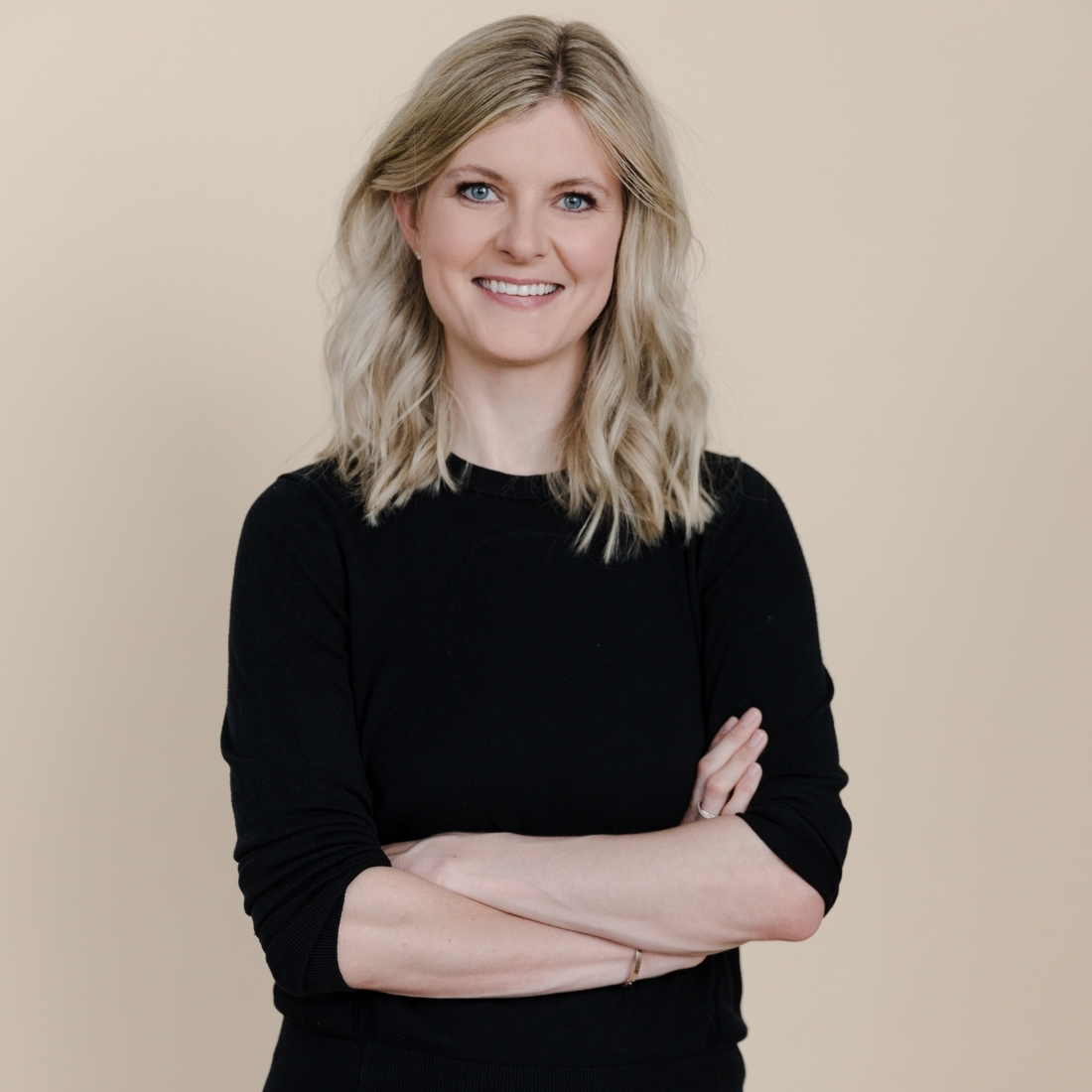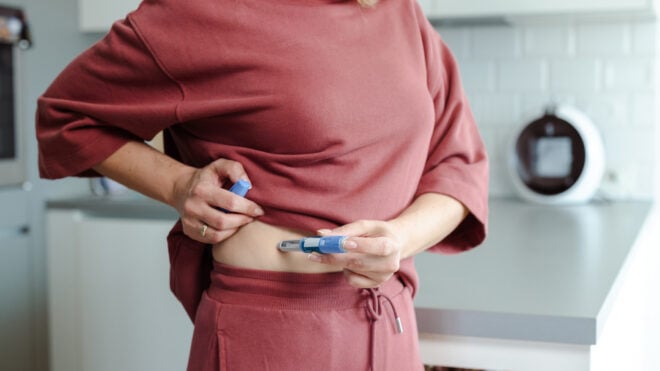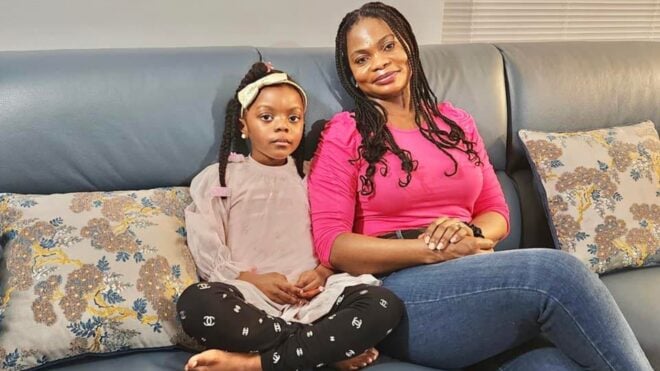
First-time motherhood is a lot of learning on the go. Many people, as prepared as they try to be, cannot help feeling overwhelmed by all the information and experiences they're going through.
Chelsea Allison felt that way when she had her first child. She'd done what she could to prepare, and yet she found herself looking for answers. She found out about a whole host of medical providers she'd never even heard of prior to giving birth.
Then something occurred to Chelsea. If many people will need one or more of these professionals, why doesn't this information exist in one place? With that, Motherfigure was born. Chelsea aimed to compile the wisdom that would typically be passed on by mother figures to everyone navigating their way through pregnancy and postpartum.
In finding her way through her breastfeeding journey, she learned about breast milk donation. LittleThings spoke with Chelsea about that part of her journey, and how it led to one of Motherfigure's newest features.

Chelsea Allison was so excited to become a mom, but like many embarking on parenthood for the first time, she was overwhelmed. Out of it came a resource to help lessen the feelings for other first-time moms.
"I founded Motherfigure out of the experience of becoming mom," Chelsea shared. "I found going through pregnancy and childbirth and raising my son — who's now 2 and I have a 2-month-old daughter as well — to be really transformative and identity shattering in so many ways."
"I wanted to create a place that would have been really helpful to me as I was embarking on that journey," Chelsea continued.
"A kind of a platform that would integrate everything from information to support, such as what I found through my lactation consultant, my pelvic floor physical therapist, my doula, the mother figures that became so critical in my life with the products I found myself needing as my body transformed to create these two little ones and reintegrate into the world. That was really the inspiration behind Motherfigure and what we've been building through our combination of the magazine, the directory, and the products."
During Chelsea's first pregnancy, she learned a lot about the different medical professionals who would help her through pregnancy and motherhood. As she tried to figure things out, she felt overwhelmed. There were doctors she'd never heard of, not to mention unclear information, if it wasn't lacking altogether. She wanted to change that experience.
"The physical experience of going through pregnancy and childbirth, especially when that comes when you're already 30 and have been living in this body for so many decades, can be, I found, really challenging to navigate," she explained.
"Even with the best prenatal care scenario, you're only meeting with your provider in the beginning every few weeks and only for half-hour increments at a time. It can be hard to get the information you need," Chelsea noted.
"So much of what I found on the internet was frankly fearmongering."
"There were a host of message boards and articles, but not a lot of evidence-based information that helped me contextualize the experience that I was having. That ranged from everything around movements of the baby while pregnant to after birth, what I should expect with postpartum bleeding."
Chelsea got candid about some of the issues she faced as a new mom. "I had trouble breastfeeding at first, and I wasn't sure what to do, and I wasn't sure how normal that was," she recalled.
"I had a difficult labor that included an episiotomy with my first child, and so I experienced a ton of pelvic pain that was really difficult to recover from. All of that contributed to a lot of uncertainty, and it was ultimately the providers I found … none of these providers were folks whose specialties I'd heard of before I needed them and needed their help."
One of the areas where Chelsea discovered a lot of information was breast milk donation. Chelsea was going through the trials and tribulations of pumping in preparation to go back to work when it came to her attention.
"I found breastfeeding to be difficult in the early days and ultimately sought the support of a lactation consultant, who really helped teach me and my son this new skill," she recalled. "As I prepared to go back to work, as so many mothers do, I really had engrained this idea that I needed to pump as much breast milk as possible to accommodate for the time when I'd be away from my son once I returned to the office."
"By the time that first day rolled around, it was almost a compulsive habit where I was breastfeeding, I was pumping, I was doing so much," she continued.
"I found myself once I returned with a freezer full of milk. It turns out a month later, I had the opportunity to return to working from home, so I was able to go back to nursing him directly. I found myself wondering what I would do with all this milk. It's not an abundance I'd really foreseen having."
Any breastfeeding mom can tell you how hard it is to lose breast milk, so Chelsea knew she didn't want it to go to waste.
"I wanted to find something I could do with it. My doula [mentioned] milk donation, which I hadn't heard of before," Chelsea said.
"Because we had this abundance, it was something where we initiated our first donation. I think of it as something me and my son were able to altruistically do together. It was because of him I was producing milk; it was for him initially. It was a gift we were able to have this supply that we were able to ultimately donate."
Chelsea was further comforted in knowing that donated breast milk goes to the most fragile babies out there in need:
"There's a lot of differing opinions out there about the pressure that is on mothers to produce breast milk, but the science does really show that for babies who are under 3.5 pounds who are born really prematurely, human milk really saves their lives. It specifically prevents an inflammatory condition which is a cause of death among infants. So milk donation does, in that sense, really save lives."
Chelsea believes that both a lack of awareness and an absence of information keeps many families who are candidates for both making donations and receiving donations from the process.
"Obviously, there is a 2,000-year-old tradition of moms sharing milk with one another," Chelsea noted.
"The advent of the milk bank is only a few decades old, wherein some neonatologists realized what was happening and how much outcomes improved with NICU babies who were given donor human milk … I think there's a lack of understanding perhaps around how the process works, and a little bit of a stigma there."
Chelsea thinks that with more information out there, the practice would be much more widespread.
"I think milk banks do a beautiful job of ensuring that this milk goes to the neediest among us. I think what I would love to see is that the hospitals that don't currently have donor milk programs get it, because this lack of access really disproportionately impacts poorer families from underrepresented communities, and it disproportionately impacts Black and brown people," Chelsea shared.
"While NICU babies often are able to access this, there are a whole other host of situations families would benefit from being able to access donor milks."
The knowledge Chelsea gained on this journey transformed the experience of her second pregnancy. "Oh my gosh, it's night and day," she laughed.
"I was able to know that folks existed who were dedicated to supporting the motherhood journey. As I went through this second pregnancy, which was frankly very different from my first because we've had this pandemic to deal with on top of everything, but I was able to get the help I needed because the experience was normalized."
"I had so much [of a] greater awareness of the providers that could support me on this journey. I was able to plug right back in with some of the providers that I found the first time around and also broaden the people with whom I sought support of. That's been true not only of me, but so many of the members of our community."
There's a lot to take in during the early days of motherhood, but Chelsea shares this advice for those readying themselves for the experience.
"It's so clichéd, but it's so true: It does get easier. It especially gets easier if you ask for help," she shared.
"I think lowering the barrier to asking for help is a big part of my mission, because that is something that can be really hard when you're in those early days of experiencing the uncertainty around pregnancy and birth and postpartum in particular. So my big piece of advice is that it does get easier and to ask for help."
Chelsea also hopes new moms will take advantage of Motherfigure's newly launched milk bank directory:
"We are making it possible for folks to search for milk banks. They can understand what's in their area in terms of if they would like to become a donor, what that process looks like, and where to reach out. Similarly, we're flagging hospitals that have donor milk programs so that if a family has a need, in either a hospital setting or from a postpartum perspective, that information is accessible."







